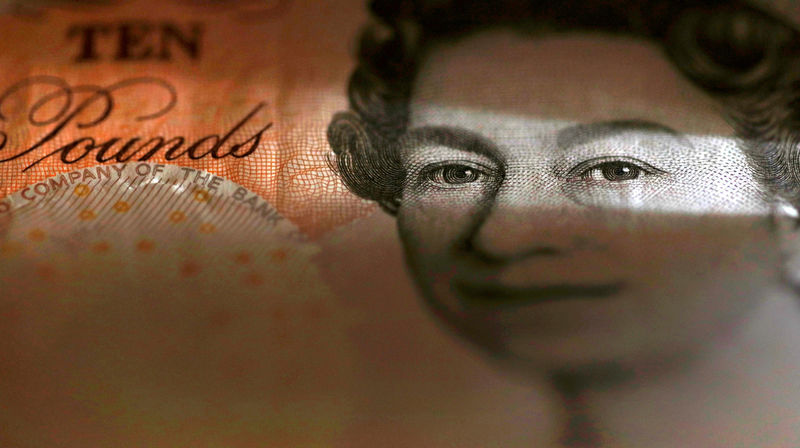By Jamie McGeever
LONDON (Reuters) - Stocks flatlined and gold fell on Wednesday as investors continued to question the 'reflation' trades that had lifted markets since the election of U.S. president Donald Trump in November, while sterling basked in the glow of a six-month high following Tuesday's surprise news of a snap UK election.
Safe-haven bonds dipped slightly but largely held onto most of their recent gains before presidential elections in France and on escalating tensions between the United States and North Korea.
European stocks were flat in early trade (FTEU3), following the 0.6 percent fall in Asian equities outside Japan to a one-month low, (MIAPJ0000PUS) while E-mini futures for the S&P 500 (ESc1) were all but flat too.
Sterling was just off a six-month peak against the dollar above $1.28 having surged when British Prime Minister Theresa May called an early general election for June 8, seeking to strengthen her party's majority ahead of Brexit negotiations.
"Sterling rallied across the board yesterday on the back of Prime Minister May’s announcement of snap UK elections. The market interpreted the move as an effort to strengthen the prime minister's majority and reinforce a more unified stance for the upcoming negotiations with the EU," Unicredit (MI:CRDI) analysts said in a note on Wednesday.
"Geopolitical tensions are providing strong support to U.S. Treasuries ... (and) in the euro zone Bunds are receiving support from the general decline in risk appetite and uncertainty related to the French presidential election," they added.
Germany's DAX was unchanged at around the 12,000-point mark (GDAXI), and Britain's FTSE 100 fell a further 0.2 percent following Tuesday's 2.5 percent slide, its biggest fall since June last year.
British stocks are vulnerable to a rising pound because more than two thirds of FTSE 100 company earnings are derived from operations overseas. The FTSE has now erased all its gains for the year.
The pound was lording it at $1.2824 <GBP=> on Wednesday having shattered a month-old trading range with a jump of 2.2 percent overnight. It also cleared the 200-day moving average for the first time since June, putting the squeeze on a raft of speculative short positions.
WALL ST LOSES STEAM
Earlier in Asia Japan's Nikkei (N225) closed a smidgen higher at 18,432 points, but Shanghai (SSEC) extended its recent retreat with a drop of 0.8 percent. The Chinese market has fallen for four straight sessions on concerns over tighter regulations.
The dollar managed to recoup its broader losses in the Asian session, and was flat against a basket of currencies (DXY) in early European trading. The euro stood at a three-week high of $1.0736 <EUR=>.
Against the yen, the dollar was up 0.4 percent at 108.80 <JPY=> having been as low as 108.39 earlier.
The dollar was undermined in part by an eroding interest rate advantage as U.S. bond yields dived to five-month lows. Yields on 10-year Treasury paper sank to 2.17 percent (US10YT=RR), a world away from the 2.629 peak seen in March. They were last up slightly on the day at 2.19 percent.
A run of disappointing U.S. economic data and doubts that the Trump administration will progress with tax cuts have quelled expectations of faster inflation and boosted fixed-income debt.
That, in turn, has taken the steam out of Wall Street. The Dow (DJI) fell 0.55 percent on Tuesday, while the S&P 500 (SPX) lost 0.29 percent and the Nasdaq (IXIC) 0.12 percent.
Goldman Sachs (N:GS) lost 4.7 percent in the largest daily drop since June after its earnings missed expectations as trading revenue dropped.
In commodity markets, profit taking nudged gold down 0.4 percent to <XAU=> $1,287.10 an ounce, and away from Monday's peak of $1,295.42.
Oil prices slipped as U.S. crude stockpiles fell by less than expected and a U.S. government report said shale oil output in May was likely to post the biggest monthly increase in more than two years.

Brent crude (LCOc1) was last little changed at $54.93 a barrel, while U.S. crude (CLc1) was also steady at $52.42.